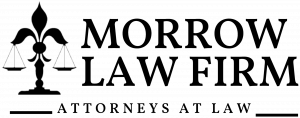The Crucial Role of Medical Evidence in Louisiana Disability Claims
William P. Morrow, a lawyer at the Morrow Law Firm who focuses on workplace injury cases, underscores the significance of medical documentation in disability claims. "Medical evidence is the backbone of any disability claim. It provides the necessary proof to support the claimant's case and demonstrates the extent of their disability," states Morrow.
The Importance of Medical Evidence
Medical evidence serves as the foundation upon which disability claims are evaluated. It includes medical records, physician's statements, diagnostic test results, treatment history, and any other relevant documentation that illustrates the claimant's medical condition and its impact on their ability to work. The Social Security Administration (SSA) and other disability determination agencies rely heavily on this evidence to assess the severity of the claimant's disability and determine eligibility for benefits.
Types of Medical Evidence
Several types of medical evidence are crucial for a disability claim:
Medical Records: Comprehensive medical records from treating physicians and healthcare providers are essential. These records should include details of the diagnosis, treatment plans, progress notes, and any hospitalizations.
Physician's Statements: Statements or letters from treating physicians that provide a detailed account of the claimant's condition, prognosis, and limitations are invaluable. These statements should specifically address the claimant's ability to perform work-related activities.
Diagnostic Tests: Results from diagnostic tests such as X-rays, MRIs, CT scans, and blood tests provide objective evidence of the claimant's medical condition. These tests help substantiate the severity of the disability.
Treatment History: Documentation of all treatments received, including medications, therapies, surgeries, and other interventions, is critical. This history demonstrates the efforts made to manage the condition and its ongoing impact on the claimant's health.
Functional Capacity Evaluations: These evaluations assess the claimant's physical and mental capabilities and limitations. They provide a detailed analysis of the claimant's ability to perform work-related tasks.
Managing Medical Documentation
Effective management of medical documentation is vital for a successful disability claim. Claimants should ensure that all relevant medical records and documents are collected, organized, and submitted promptly. Regular communication with healthcare providers to obtain updated records and statements is also important.
Morrow highlights the importance of thorough documentation, stating, "Accurate and detailed medical records are essential for demonstrating the impact of the disability on the claimant's ability to work. Incomplete or inconsistent documentation can hinder the success of a claim."
Addressing Common Challenges
Several challenges can arise in the process of managing medical evidence for disability claims:
Incomplete Records: Missing or incomplete medical records can weaken a claim. It is crucial to obtain all relevant documentation from healthcare providers.
Inconsistent Statements: Inconsistencies between different medical records or between the claimant's statements and medical evidence can raise doubts about the validity of the claim. Consistent and corroborative documentation is essential.
Outdated Information: Medical records should be up-to-date to accurately reflect the claimant's current condition. Regular follow-ups with healthcare providers are necessary to ensure the most recent information is available.
Understanding Medical Terminology: Claimants may struggle to understand complex medical terminology. Seeking assistance from legal or medical professionals can help interpret and present the evidence effectively.
Legal Assistance in Managing Medical Evidence
Legal assistance can play a crucial role in managing and presenting medical evidence for disability claims. Lawyers experienced in disability law understand the requirements and nuances of the documentation needed to support a claim. They can guide claimants in gathering the necessary evidence, organizing it effectively, and addressing any potential challenges.
"Having an experienced legal team can make a significant difference in the outcome of a disability claim," states Morrow. "Lawyers can help ensure that all medical evidence is accurately presented and that the claimant's case is effectively communicated to the disability determination agencies."
Conclusion
The importance of medical evidence in disability claims in Louisiana cannot be overstated. Proper management and presentation of medical documentation are essential for demonstrating the severity of the disability and securing the benefits that claimants deserve. The Morrow Law Firm, led by William P. Morrow, John Michael Morrow, Jr., and Stephen M. Morrow, remains dedicated to assisting claimants in navigating the complexities of the disability claims process, ensuring that medical evidence is meticulously documented and presented to support their cases effectively.
Morgan Thomas
Rhino Digital, LLC
+1 504-875-5036
email us here
Visit us on social media:
Facebook
Legal Disclaimer:
EIN Presswire provides this news content "as is" without warranty of any kind. We do not accept any responsibility or liability for the accuracy, content, images, videos, licenses, completeness, legality, or reliability of the information contained in this article. If you have any complaints or copyright issues related to this article, kindly contact the author above.


